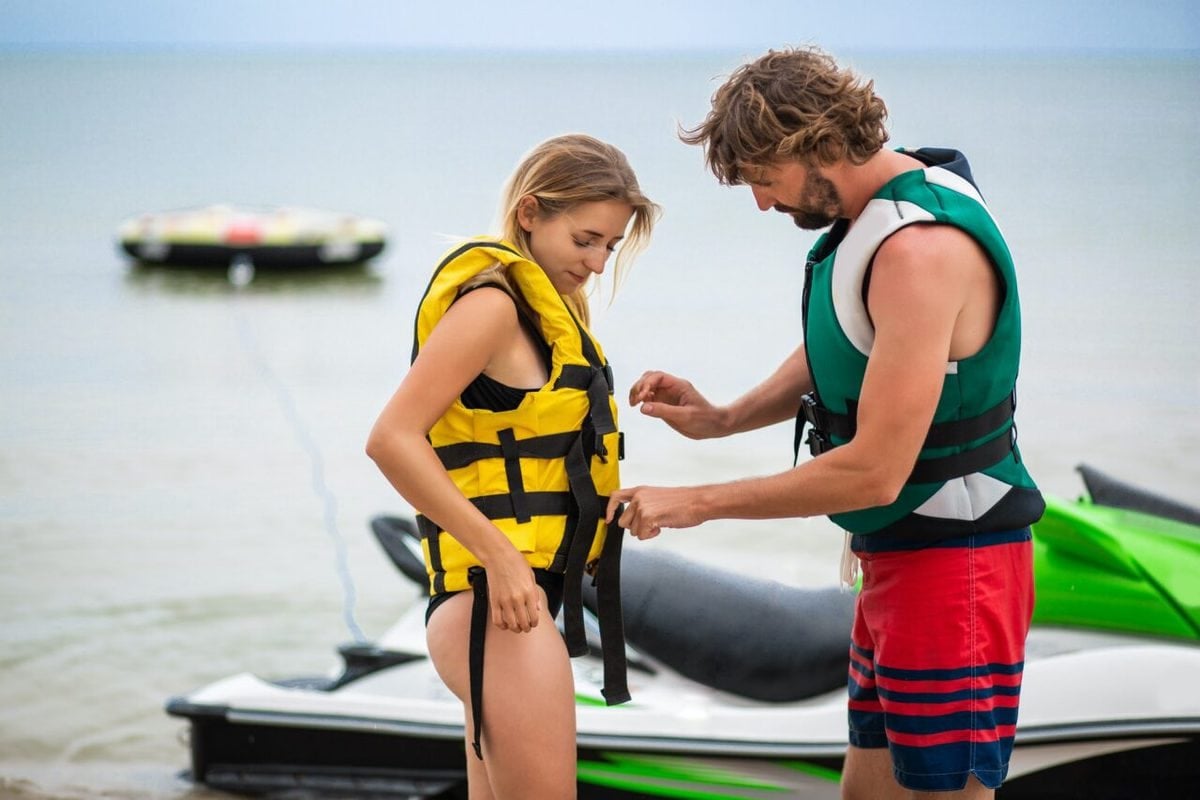What is Most Likely to Cause Someone to Fall Overboard?
Boating is fun. Millions of people sail as a hobby every year and accidents are bound to happen during the sail. However, boating has its fair share of risks and falling overboard is one of these risks. There are several safety precautions you can take to enjoy without the risk of drowning.
How Does Someone Fall Overboard?
The main cause of people falling overboard from small boats is standing up when the boat is in motion. This happens more when the boat is sailing on rough waters or fast and the person is not standing steady. In larger family boats with support rails, the main cause of falling overboard is being under influence and being reckless.
Men who stand in a small boat to pee in the water are more likely to fall overboard. There are other cases where someone tries to perform some dangerous stunts while in the boat and others who want to get the perfect selfie and ends up in the water.
In most large family boats, the main cause of someone falling overboard is recklessness. This might result from being intoxicated or not taking standard precautions when in the boat.
There is more you need to know to avoid falling overboard. Read on.
What Happens When One Falls Overboard?
The rule of thumb for safety in boats is to always keep one of your hands on the boat when you stand up. If you follow this simple rule, you will be safe in your boat at all times. Larger boats have another rule – keep one person in watch so that they can report if someone falls overboard.
The deck of a boat is not always safe, especially when the boat is moving. It is even more dangerous to be on the deck when the boat is moving on rough waters. If you have to go on deck, be hooked to a harness and keep one hand on the boat at all times.
If someone falls overboard, they can be rescued if the boat rescue devices and plans are deployed in time. The nature of the risks involved is dependent on the conditions of the fall. Here is what may happen:
Harm from the Fall
Water looks like a soft material, but there is a reason why divers always go arms or legs first and then other parts. The surface of the water can cause injuries, especially if you fall on your back. You will fall a few meters from the deck to the water, but that can still result in injuries.
Drowning in Cold Water
There are seasons when the water is so cold. The shock from the cold water might kill someone instantly. As one struggles to breathe, they may end up swallowing the water.
It is not easy to swim in cold water as the limbs may fail to move and one ends up drowning. When submerged inside the cold water, one unwillingly releases all the air in their lungs and then they gasp for air and that is why they drown.
If you fall into very cold waters, the chances of survival are very low. A person will succumb to hypothermia within minutes of falling into icy-cold water. Hypothermia is a condition where the body loses heat faster than it can generate those lowering the core body temperature below 95 degrees.
With hypothermia, someone loses their brain function within a few minutes. It starts with garbled speech, slow pulse, rigid joints, intense shivering, and ends with mental mix-up before death.
Carried by Currents
Strong currents can throw someone off a boat if they stand very close to the edge. If that happens, the same strong currents will toss someone away from the boat and this makes it challenging for the other people to find the drowning person. The currents may also toss someone around and into the propellers, which then injure them.
Water Animals
Sharks and other water animals will not attack you while in your boat unless you harass them. However, if you fall in the water, sharks see it as intrusion. The situation is even dire if you are wounded and there is blood on your body.
These animals can detect minor vibrations and drops of blood from several meters away. It would be a cruel death to die under the teeth of sharks.
What Should You Do To Prevent Falling Overboard From A Small Boat?
You only need to be careful to ensure that you do not fall overboard. Observe the rule of thumb; keep one hand on the boat at all times and especially when you are standing. You also need to avoid being too close to the edge of the boat.
Stunts in a boat are okay when you are inside the cabin. Outside the cabin, on deck, you need to be careful. You do not need to die to get the perfect selfie or group photo. And if you have to take a risky selfie, at least ensure the boat is not moving and there are no currents.
If you stay off the edge of the boat, especially when you are drinking and after drinking, you will be safe. If you feel intoxicated, go inside the cabin and lie down until you feel sober.
You should stay in the cabin if the weather gets foul. The boat will not be steady and the deck will be slippery. The strong wind may even blow you off the boat.
Taking some safety precautions and having the right safety gear can save you. You can start by wearing non-slip shoes to stay steady when the deck is slippery. Boat shoes are safe when you walk on wet floors.
You can also wear a life jacket at all times when you are in a boat. The life jacket will not prevent you from falling, but it can save you from drowning if you fall overboard.
Finally, drink responsibly if you must. Being intoxicated is a great way to have fun, but it also puts you in danger of falling overboard.
What Is The First Thing To Do If You See Someone Go Overboard?
How do you rescue someone who fell overboard? The easiest way to save someone who falls overboard is to throw them a life ring or life jacket. The life ring will save someone more than their swimming skills might. Again, the ring or the jacket are bright in color, and it is easier for the onboard passengers to keep track of the overboard person.
Once you toss them a life ring, slow down the boat and turn around, ensuring that you do not turn too quickly as you may not stop in time to avoid hitting the overboard person. Stop the engine to ensure the victim doesn’t suffer any harm from the propeller.
Once you are there, you can use a reaching pole or a rope to pull the victim onboard. As you pull them onboard, ensure you do not hit them with the boat.
If you are in a large family boat, the victim can climb over the boat’s ladder, or they can come in through the stern. In a small boat, the onboard passengers need to maintain the balance of the boat so that it doesn’t flip over. The victim can also climb in from the stern where you can assist them without the boat flipping over.
What Do You Do If You Fall Overboard?
If you fall overboard, relax and float on the water instead of trying to swim. You need to conserve your energy and wait until someone saves you. You can lie flat on your back with your head above the water and float.
You can also float facedown. Here, your body hangs on the surface of the water and you just float. If you need to breathe, you lift your head and take a deep breath.
You can survive for a day if you remain calm. There is a story of a man, Brett Archibald, who survived for 29 hours in the Indian Ocean. He floated on the water for all that time and avoided all the dangers that come with being in the Indian Ocean.

Closing Thoughts
You will fall overboard if you are reckless. If you stand in the boat and you do not hold on to the boat, especially a small moving boat, you are likely to fall. If you drink near the edge of the boat and stay there after your drinking, you are also likely to fall off the boat and into the water.
You are safe if you observe the rule of thumb in boat safety; always hold on to the boat with one hand when you are standing or moving in the boat. You can also bring your safety boat gear such as life jacket and have fun while you have it on. For a large boat, bring a diver who will keep watch of people’s activities in the boat.
